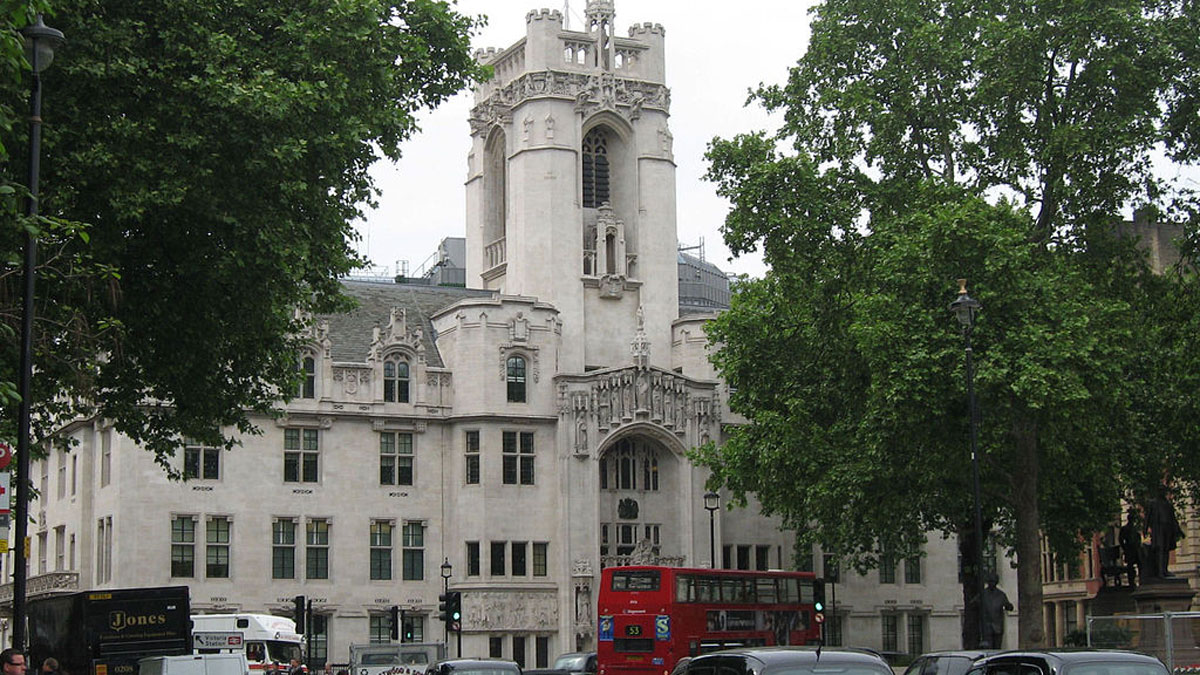Supreme Court blocks Scotland's 'named person' scheme
Scottish government's plan to protect young children could breach human rights, say UK judges

A free daily email with the biggest news stories of the day – and the best features from TheWeek.com
You are now subscribed
Your newsletter sign-up was successful
Scotland's plan to implement a "named person" scheme to protect children has been blocked by judges at the Supreme Court, who say the plan risks breaching the European Convention on Human Rights (ECHR).
The case was brought by a coalition of charities, including some Christian groups, which argued the proposals would empower "state snoopers" and represented "unjustified and unjustifiable state interference with family rights".
Under the plan, which was passed unanimously by the Scottish Parliament in 2014, every child in Scotland would be allocated a named individual to ensure his or her wellbeing from birth to 18.
The Week
Escape your echo chamber. Get the facts behind the news, plus analysis from multiple perspectives.

Sign up for The Week's Free Newsletters
From our morning news briefing to a weekly Good News Newsletter, get the best of The Week delivered directly to your inbox.
From our morning news briefing to a weekly Good News Newsletter, get the best of The Week delivered directly to your inbox.
That person, usually a health visitor or teacher, would be a point of contact for the child or its parents for information or advice. They would also act as a central coordinator for the various agencies, schools or police forces that might interact with the child.
Critics argued the proposals eroded the rights of parents, says The Guardian, and feared that rather than targeting high-risk children, the plan would spread resources thinly across people who may never need them.
The judges did not reject the scheme, saying it was "unquestionably legitimate and benign", but instead gave the Scottish government 42 days to correct aspects of the legislation.
They added that the information-sharing provisions, which would allow the named individual to coordinate agencies, risked violating the ECHR and were therefore "not within the legislative competence of the Scottish Parliament".
A free daily email with the biggest news stories of the day – and the best features from TheWeek.com
The judgement said it was "perfectly possible" that "confidential information concerning a child or young person's state of health (for example, as to contraception, pregnancy or sexually transmitted disease), could be disclosed… to a wide range of public authorities without either the child or young person or her parents being aware of the interference with their… rights".
Both sides have claimed the result as a victory. The No to Named Persons coalition said the judgement proved its concerns were "properly founded".
"This ruling means the Scottish government… must scrap its plan for state snoopers with intrusive data sharing powers. It has to go back to the legislative drawing board. The Big Brother scheme is history," said a spokesman.
But the SNP's John Swinney said the court had made it clear "the principle of providing a named person to support children and families does not breach human rights".
The Scottish government said it would set about rewriting and expanding the legislation in line with the judgement and the scheme would go ahead at a later date.
-
 Bondi, Democrats clash over Epstein in hearing
Bondi, Democrats clash over Epstein in hearingSpeed Read Attorney General Pam Bondi ignored survivors of convicted sex offender Jeffrey Epstein and demanded that Democrats apologize to Trump
-
 Are Big Tech firms the new tobacco companies?
Are Big Tech firms the new tobacco companies?Today’s Big Question Trial will determine if Meta, YouTube designed addictive products
-
 El Paso airspace closure tied to FAA-Pentagon standoff
El Paso airspace closure tied to FAA-Pentagon standoffSpeed Read The closure in the Texas border city stemmed from disagreements between the Federal Aviation Administration and Pentagon officials over drone-related tests
-
 Home Office worker accused of spiking mistress’s drink with abortion drug
Home Office worker accused of spiking mistress’s drink with abortion drugSpeed Read Darren Burke had failed to convince his girlfriend to terminate pregnancy
-
 In hock to Moscow: exploring Germany’s woeful energy policy
In hock to Moscow: exploring Germany’s woeful energy policySpeed Read Don’t expect Berlin to wean itself off Russian gas any time soon
-
 Were Covid restrictions dropped too soon?
Were Covid restrictions dropped too soon?Speed Read ‘Living with Covid’ is already proving problematic – just look at the travel chaos this week
-
 Inclusive Britain: a new strategy for tackling racism in the UK
Inclusive Britain: a new strategy for tackling racism in the UKSpeed Read Government has revealed action plan setting out 74 steps that ministers will take
-
 Sandy Hook families vs. Remington: a small victory over the gunmakers
Sandy Hook families vs. Remington: a small victory over the gunmakersSpeed Read Last week the families settled a lawsuit for $73m against the manufacturer
-
 Farmers vs. walkers: the battle over ‘Britain’s green and pleasant land’
Farmers vs. walkers: the battle over ‘Britain’s green and pleasant land’Speed Read Updated Countryside Code tells farmers: ‘be nice, say hello, share the space’
-
 Motherhood: why are we putting it off?
Motherhood: why are we putting it off?Speed Read Stats show around 50% of women in England and Wales now don’t have children by 30
-
 Anti-Semitism in America: a case of double standards?
Anti-Semitism in America: a case of double standards?Speed Read Officials were strikingly reluctant to link Texas synagogue attack to anti-Semitism